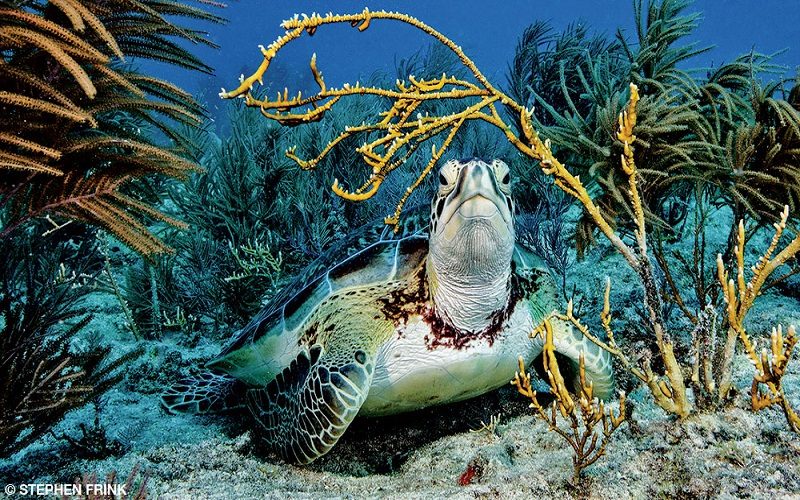Concerned citizens might find a lot to worry about right now when it comes to the environment. In the U.S., industries have renewed efforts to weaken some of the country’s core environmental protections and laws. Whether it’s proposals to open new areas to offshore drilling, efforts to privatize our public lands and resources or attempts to overturn regulations that govern our nation’s fisheries, these challenges can feel overwhelming to people who want future generations to have healthy and abundant oceans in which to dive.
Although these efforts may be daunting, concerned citizens can make their voices heard and effect change.
At Oceana, we work to win policy victories that will maintain or restore ocean abundance and biodiversity. These victories are in large part due to the actions and advocacy of everyday citizens, businesses and communities that partner with us to take a stand to protect our nation’s marine resources.
Using this approach, we worked with East Coast communities to build a grassroots movement opposing offshore oil drilling and seismic testing in the Atlantic. We worked with more than 12,500 schoolchildren who sent letters to the White House in 2016 to save sea turtles in U.S. waters. We also engaged more than 200 businesses and organizations that called on Congress to support a bill to ban the domestic trade of shark fins.
Throughout Oceana’s more than 15 years of effecting policy change, it has become evident that the most powerful way to influence Congress about a given issue is through you, the constituents who are most affected and most emboldened to take action. When you as a concerned citizen call your members of Congress, show up to rallies and write op-eds in local newspapers, it works. The people who represent you — who rely on your votes to keep their jobs — pay attention.
Get Involved
For more information or to add your name in support of a particular ocean initiative, please visit Oceana.org or send an email to .
The dive community plays an important role as a group of citizens with a stake in the ocean’s future. The vibrancy, beauty and diversity to which divers are drawn persist in part because of laws that have protected our marine resources for decades but may now be in peril. More than most other groups, divers see firsthand how policy changes at the federal level influence the abundance and health of our oceans. Divers can also observe the outcomes of existing laws such as the bipartisan Magnuson-Stevens Fishery Conservation and Management Act (MSA), the primary law governing marine fisheries management in the U.S. It has helped to end overfishing, protect essential habitat and rebuild depleted stocks.

Now, however, we are on the edge of overturning decades of progress. In January 2017, Rep. Don Young (R-Alaska) introduced the Strengthening Fishing Communities and Increasing Flexibility in Fisheries Management Act (H.R. 200), which would weaken key conservation provisions in the MSA and reduce the quality standards for science used in management decisions. This could open the door to overfishing and reduce transparency, limiting the ability of citizens to access basic fishery information.
This legislation would threaten some of the most iconic and popular fish that divers enjoy seeing and that seafood lovers want on their dinner plates. (While these desires might appear to be contradictory, they can coexist with enlightened conservation measures.) We must not forget that species can come back from the brink of collapse; grouper populations in the Gulf of Mexico, for example, were recently overfished but were rebuilt through management measures in the MSA.

divers and nondivers alike.
So how can divers help? Visit whoismyrepresentative.com and find the contact information for your U.S. congressional representative. Oceana encourages you as a citizen who cares about our oceans, our coastal communities or our nation’s seafood, and who wants a healthy and vibrant ocean for your children and grandchildren, to call your U.S. congressional representative and voice opposition to H.R. 200. For divers and dive businesses specifically, Oceana is currently collecting signatures for a petition to urge Congress to protect the MSA.
Our most important advice is to get involved. Whether that means attending a city council meeting, organizing a letter-writing campaign or gathering a group of friends and visiting your U.S. congressional representative’s local or Washington, D.C., office, it is all important — and it all matters, now more than ever.
Divers are some of the most vocal champions for protecting our oceans. The future of the ocean depends on those who care and make their voices heard. Those with political power are often swayed by lobbyists’ financial contributions, but legislators will take notice if a significant percentage of their constituency speaks up about a particular issue. We witness this influence when we are on Capitol Hill talking to legislators and their staff.
While more legislation that would lead to degradation of the marine environment may be introduced and more executive orders rolling back environmental protections may be signed, we should not give up. This country is home to millions of Americans who want to safeguard our nation’s precious resources, and individuals can magnify their power by working with like-minded others. For the sake of our oceans, we should use our voices to protect what we love.
| © Alert Diver — Q1 2018 |